
Psychology Prof @NYUPsych | author of @PowerOfUsBook & newsletter (https://t.co/bG3QVlNURs) | Director of @vanbavellab | Assistant to @TessaWestNYU
How to get URL link on X (Twitter) App



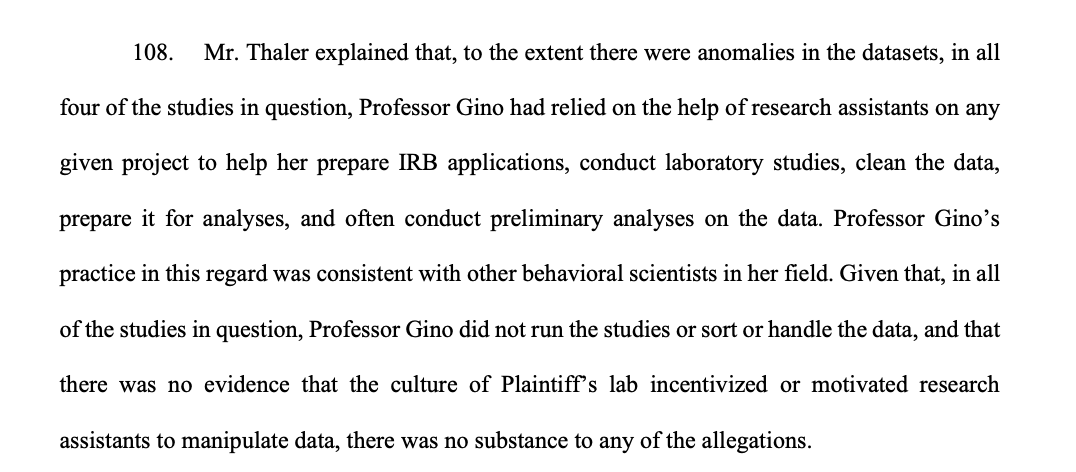
https://twitter.com/danengber/status/1686851180771557376Here is Gino's argument that her RAs someone prepared the data for analysis and conducted preliminary analysis and she did not run the studies nor handle the data.

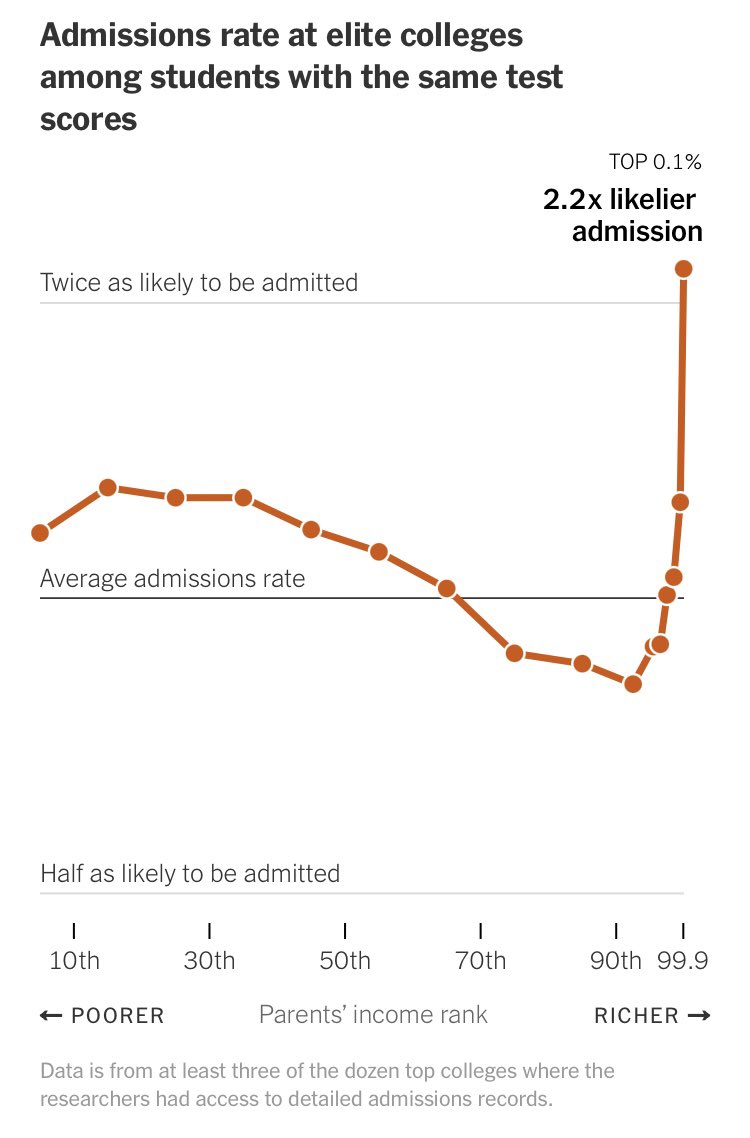


 This is a pretty shocking finding from the #GrowthMindset meta-analysis:
This is a pretty shocking finding from the #GrowthMindset meta-analysis:
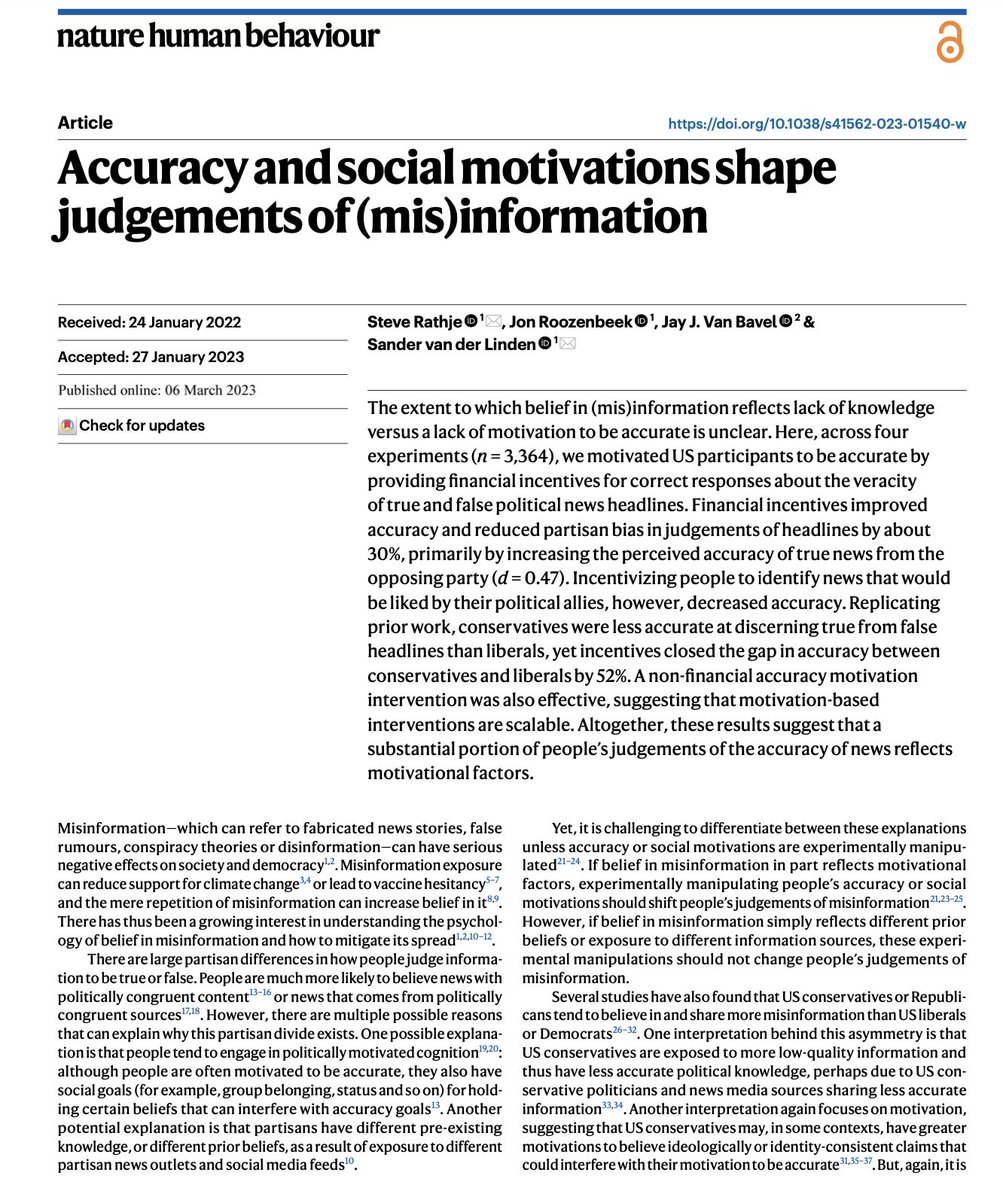
 @steverathje2 @Sander_vdLinden @roozenbot @nyuniversity @vanbavellab @Cambridge_Uni Across 4 experiments, we found that:
@steverathje2 @Sander_vdLinden @roozenbot @nyuniversity @vanbavellab @Cambridge_Uni Across 4 experiments, we found that: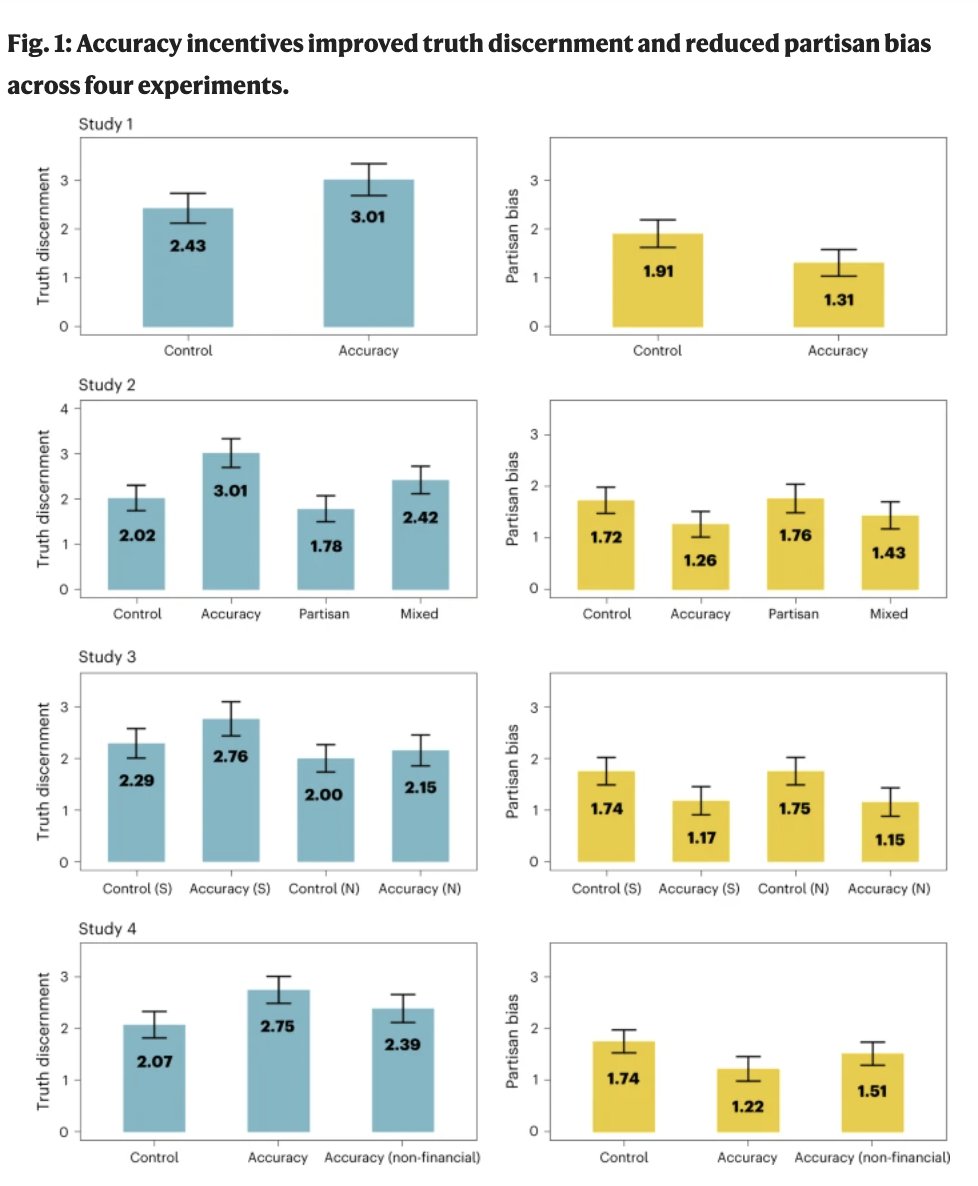

 This was the list of social media influences with the lowest rates of vaccine confidence and vaccination rates in the entire sample:
This was the list of social media influences with the lowest rates of vaccine confidence and vaccination rates in the entire sample:
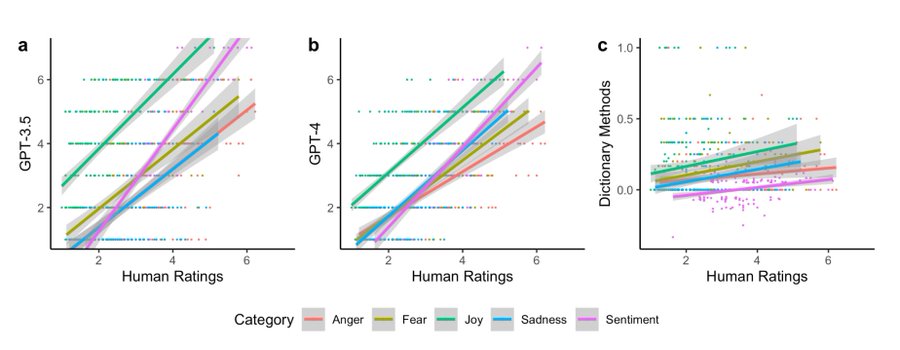
 Our paper suggests AI (GPT) will might make automated psychological text analysis more accurate & efficient.
Our paper suggests AI (GPT) will might make automated psychological text analysis more accurate & efficient. 

 @nytimes The @nytimes tallied divisive political words from our online polarization dictionary (created by @almogsi & @william__brady) academic.oup.com/pnasnexus/arti…
@nytimes The @nytimes tallied divisive political words from our online polarization dictionary (created by @almogsi & @william__brady) academic.oup.com/pnasnexus/arti…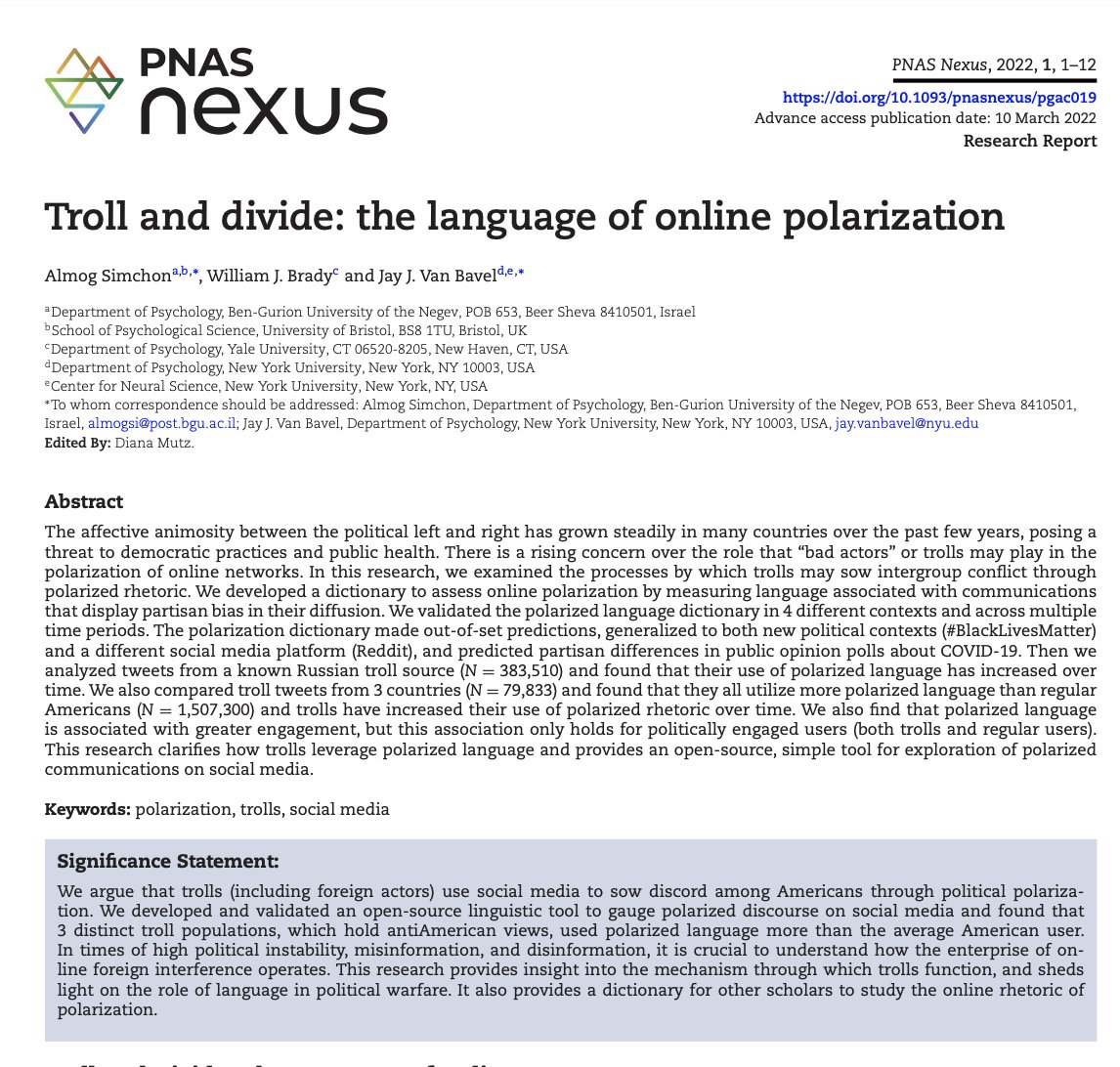
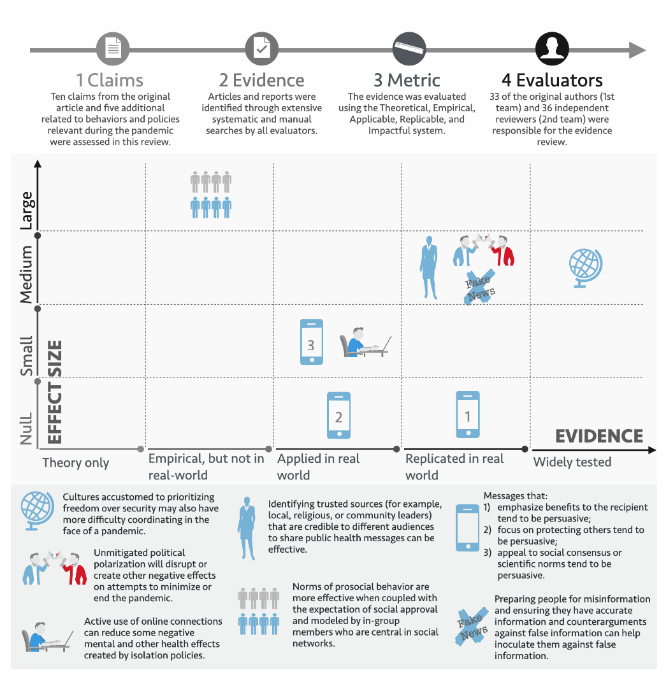
 This was a comprehensive analysis of the claims from our 2020 @NatureHumBehav paper "Using social and behavioural science to support COVID-19 pandemic response" nature.com/articles/s4156…
This was a comprehensive analysis of the claims from our 2020 @NatureHumBehav paper "Using social and behavioural science to support COVID-19 pandemic response" nature.com/articles/s4156…
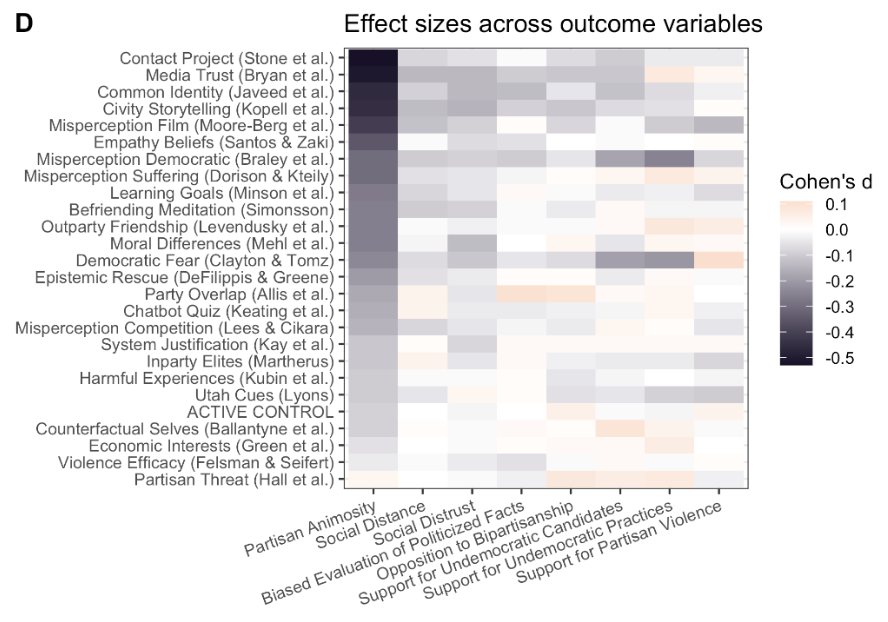
 In my view, this is one of the most impressive studies in the history of the field.
In my view, this is one of the most impressive studies in the history of the field. 
 To learn more about the key findings from the project and our team of over 250 authors from around the globe, please read this thread for a brief summary:
To learn more about the key findings from the project and our team of over 250 authors from around the globe, please read this thread for a brief summary: https://twitter.com/jayvanbavel/status/1448741986782089216


https://twitter.com/APFactCheck/status/1479886452641120261This video of the Asch Experiment is being shared as evidence of Mass Formation Psychosis.

 I have never even seen the term "mass formation psychosis" in a scientific paper.
I have never even seen the term "mass formation psychosis" in a scientific paper.